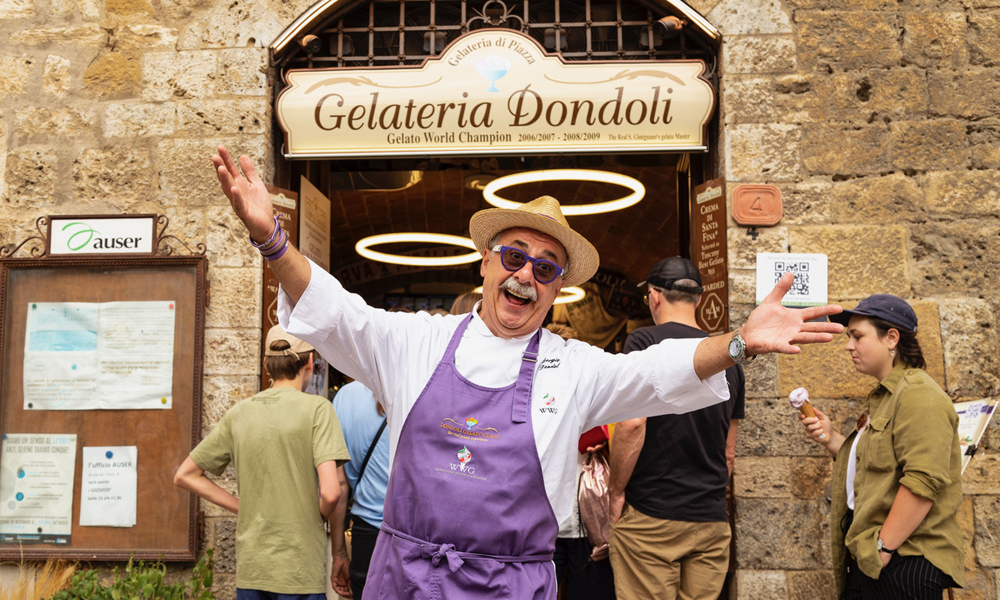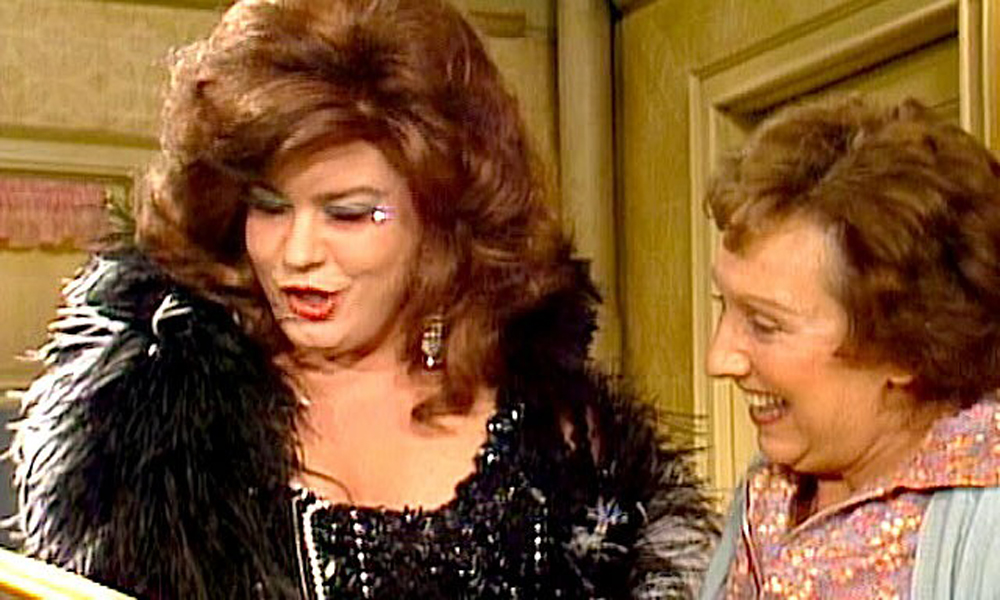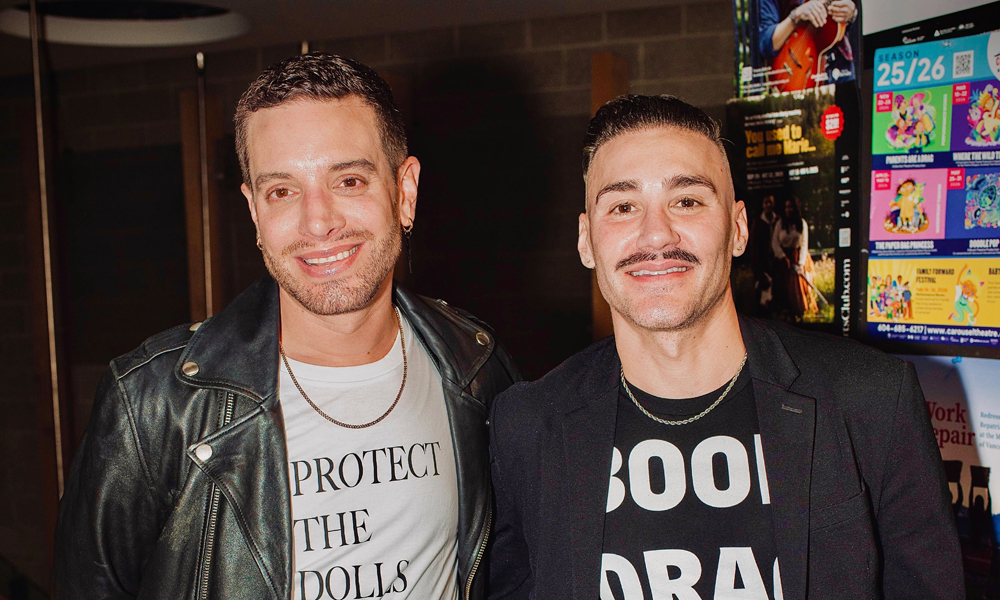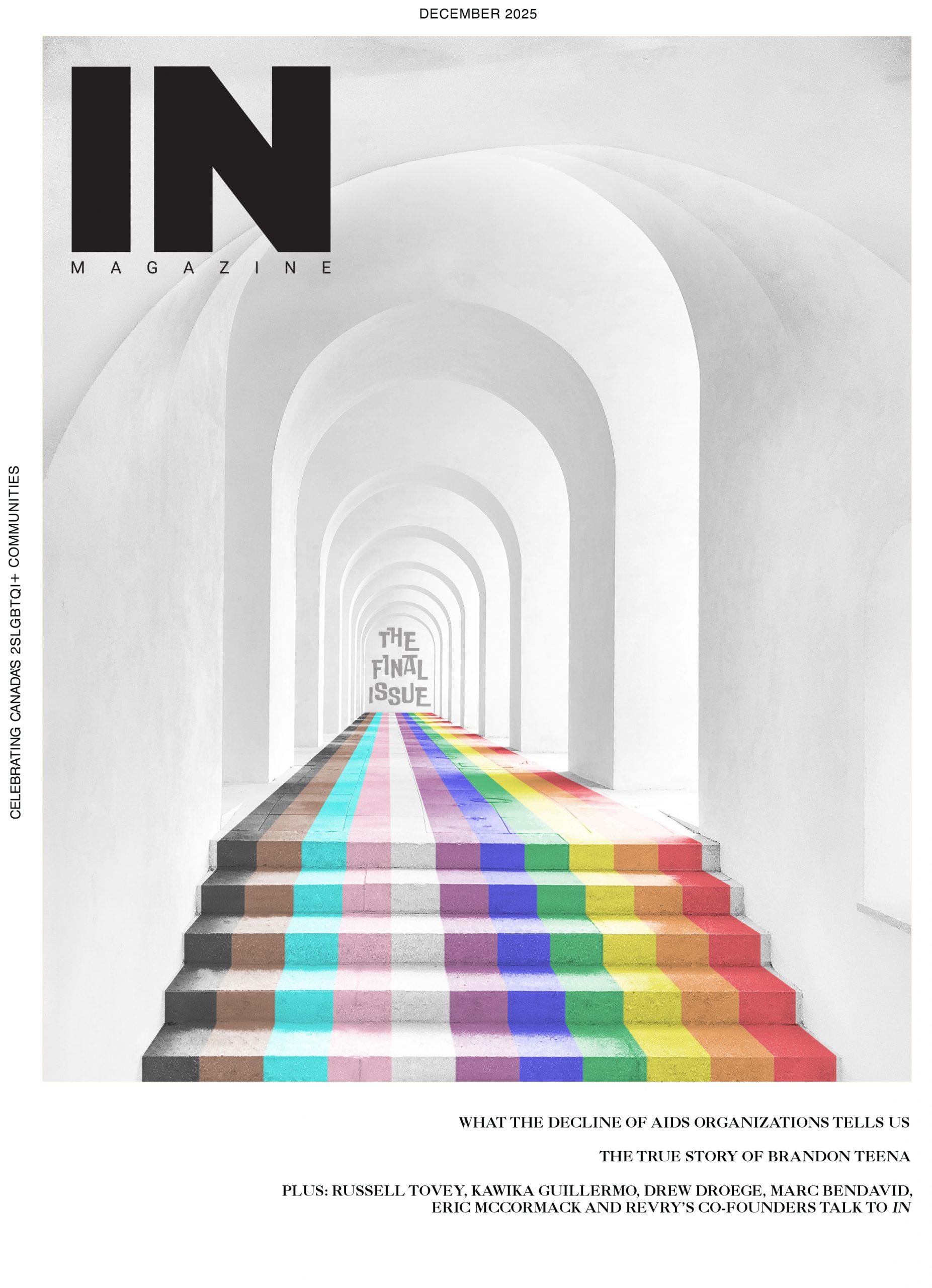‘Sergio Dondoli’s Happy Life’ serves up gelato, love, and a way of living…
By Mark Dawson
Set against the breathtaking backdrop of the Tuscan countryside, Sergio Dondoli’s Happy Life is not just a documentary about gelato; it’s a celebration of passion, sustainability, and the profound joy found in everyday craftsmanship. Directed by out director Jay Arnold, the award-winning film offers a rich, sensory journey into the life of one of Italy’s most beloved gelato artisans, Sergio Dondoli.
At the heart of the film is Sergio’s world-renowned Gelateria Dondoli, nestled in the medieval Piazza della Cisterna in San Gimignano. Since opening its doors in 1992, the shop has become a must-visit destination for food lovers from across the globe. Sergio’s inventive, trademarked flavors [including Crema di Santa Fina (saffron and pine nuts), Champelmo (pink grapefruit and sparkling wine), and Dolceamaro (cream with aromatic herbs)] are just a few of the reasons why he has earned two Ice Cream World Championships and two Ice Cream World Cup titles as part of Team Italy.
But Happy Life is more than a biographical portrait of a culinary master. As Arnold puts it, “This wasn’t just about gelato. It was about an entire way of life.” What drew the director to Dondoli’s story initially was a simple gelato-making class. It quickly evolved into something much deeper. Arnold recalls being struck by Sergio’s reverence for every ingredient and the deep affection he held for the land, the animals, and the people involved in the process. “Sergio is incredibly warm, accessible, and a truly joyful person,” Arnold says. “He led me to the heart of the story.”
That heart, it turns out, beats with love for family, tradition, food, and sustainability. Sergio’s commitment to supporting a biodynamic farm where cows roam freely, feed naturally, and live with their calves is the inspiration for the film’s title. The farm, called Happy Life, produces what Dondoli believes is the best milk in the world and it’s what gives his gelato its extraordinary flavor. “I’ve never tasted anything like it,” Arnold shares. “It’s just a little cup of joy.”
This is Arnold’s first foray into documentary filmmaking after a successful career in narrative features, including the gay film Shoulder Dance. The experience proved both challenging and transformative. “In a narrative film, you have a script. Here, we had no idea what we’d uncover,” he explains. “There were a lot of late nights reshuffling our schedule on a whiteboard and trying to stay open to what we didn’t plan.” That improvisational spirit, guided by Sergio’s natural rhythm, became the backbone of the project.
Visually, Happy Life captures Sergio’s world with a soft, observational lens. Arnold resisted the urge to impose a narrative, opting instead to invite the viewer into Sergio’s daily life. “I wanted audiences to connect with Sergio the way I did by simply being with him, watching him work, and listening to his stories,” he says. The result is a documentary that feels more like a heartfelt visit with a dear friend than a traditional biography.
One of the film’s most powerful undercurrents is its quiet but firm advocacy for sustainability and the power of real food. Sergio’s approach favours clean, organic, and local ingredients. It is more than a culinary philosophy; it’s a lifestyle. “In Italy, ultra-processed foods make up about 15% of the average diet,” Arnold notes. “In the UK, it’s 44%. In Canada, its 50% and in the U.S., it’s closer to 60%. Maybe it’s no coincidence Italians live six or seven years longer on average.” The film doesn’t preach, but it does make a compelling case for the connection between what we consume and how we live.
Happy Life also features cameos from Italian culinary legends like world-famous butcher Dario Cecchini of Panzano and two-Michelin-starred Chef Gaetano Trovato of Arnolfo. Their appearances add further depth to a film that is as much about community as it is about craft. “There’s such a sense of pride in every supplier for the items they grow and harvest,” Arnold says. “It’s infectious. It was a life-changing experience.”
Arnold hopes the film inspires more than just a craving for gelato. “I hope audiences walk away with a greater appreciation for where their food comes from,” he says. “And with the knowledge that joy, sustainability, and love are not just ideas. They’re choices we make every day.”






POST A COMMENT